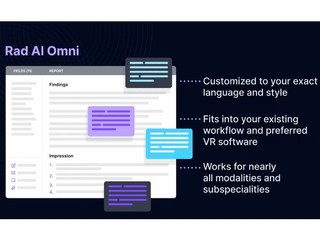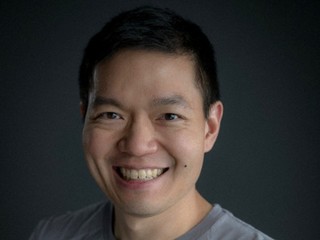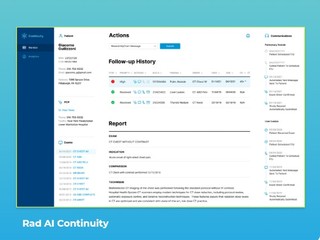Digital health funding declines for the third year in a row
AI-enabled digital health startups raised $3.7B, 37% of total funding for the sector
Read more... There's no part of healthcare where you won't see AI being deployed now, but the first area where it was deployed was radiology. In fact, the first reports of AI use in radiology date all the way back to 1992 when it was used to detect microcalcifications in mammography; that's due to its ability to quickly process vast amounts of image data, detecting patterns and abnormalities that may not be caught by a human eye.
There's no part of healthcare where you won't see AI being deployed now, but the first area where it was deployed was radiology. In fact, the first reports of AI use in radiology date all the way back to 1992 when it was used to detect microcalcifications in mammography; that's due to its ability to quickly process vast amounts of image data, detecting patterns and abnormalities that may not be caught by a human eye.
Rad AI uses machine learning and artificial intelligence to make radiologists more efficient by streamlining their reports.
This week, the company announced it raised $50 million in a Series B financing round led by Khosla Ventures, with participation from WiL (World Innovation Lab) and existing investors ARTIS Ventures, OCV Partners, Kickstart Fund, and Gradient Ventures (Google's AI-focused fund), among others.
This latest round, its first since raising a $25 million round in 2021, brings Rad AI's total capital raised to over $80 million.
Founded in 2018 by Jeff Chang, the youngest radiologist in U.S. history, Rad AI's products include Omni, which automates the impression section of a radiologist's report, in which they summarize and synthesize the conclusions of what they've seen; Continuity, a coordination product for health systems; and Rad AI Reporting, its AI-enabled reporting platform which can reduce words dictated by up to 90%.
The company solutions are currently used by more than a third of all US health systems and by nine of the 10 largest US radiology practices. It is used by over 30% of U.S. radiology practices and health systems, collectively caring for more than 50 million patients every year.
The company has been able to demonstrate an increase in patient follow-up rates for actionable findings from 30% to over 85%, while creating reports twice as fast and reducing the number of words dictated in many cases by up to 90%. It's also able to reduce report error rates by nearly 50% for complicated cases.
This funding comes a few months after Rad AI announced a partnership with Google, in which Rad AI will use Google's cloud and AI tools, while Google Cloud will be Rad AI's preferred provider.
Through the partnership with Google, Rad AI said it planned to enhance Omni Impressions and Reporting with additional domain-aligned gen AI models from Google, including MedLM. The goal is to improve Rad AI's ability to automatically generate more of the radiology report, customized to each radiologist's specific language and style.
In addition, Rad AI will look to increase the size and complexity of its Omni Impressions and Reporting gen AI models, giving them more clinical accuracy, personalization, and performance gains.
"At Rad AI, we've built the most widely adopted generative AI solutions in healthcare, saving physicians time and improving patient care. Rad AI has become a mission-critical part of health system workflows over the past five years. This strategic funding round further cements our position as the leading AI-driven workflow platform in healthcare," Doktor Gurson, co-founder and CEO of Rad AI, said in a statement.
(Image source: radai.com)
AI-enabled digital health startups raised $3.7B, 37% of total funding for the sector
Read more...OXcan combines proteomics and artificial intelligence for early detection
Read more...Nearly $265B in claims are denied every year because of the way they're coded
Read more...Startup/Business
Joined Vator on
Rad AI applies neural networks to radiology in order to save lives and reduce the cost of healthcare.
Our first product integrates seamlessly with existing workflow to significantly increase radiologist efficiency, while reducing radiologist burnout and improving clinical accuracy.

Joined Vator on



